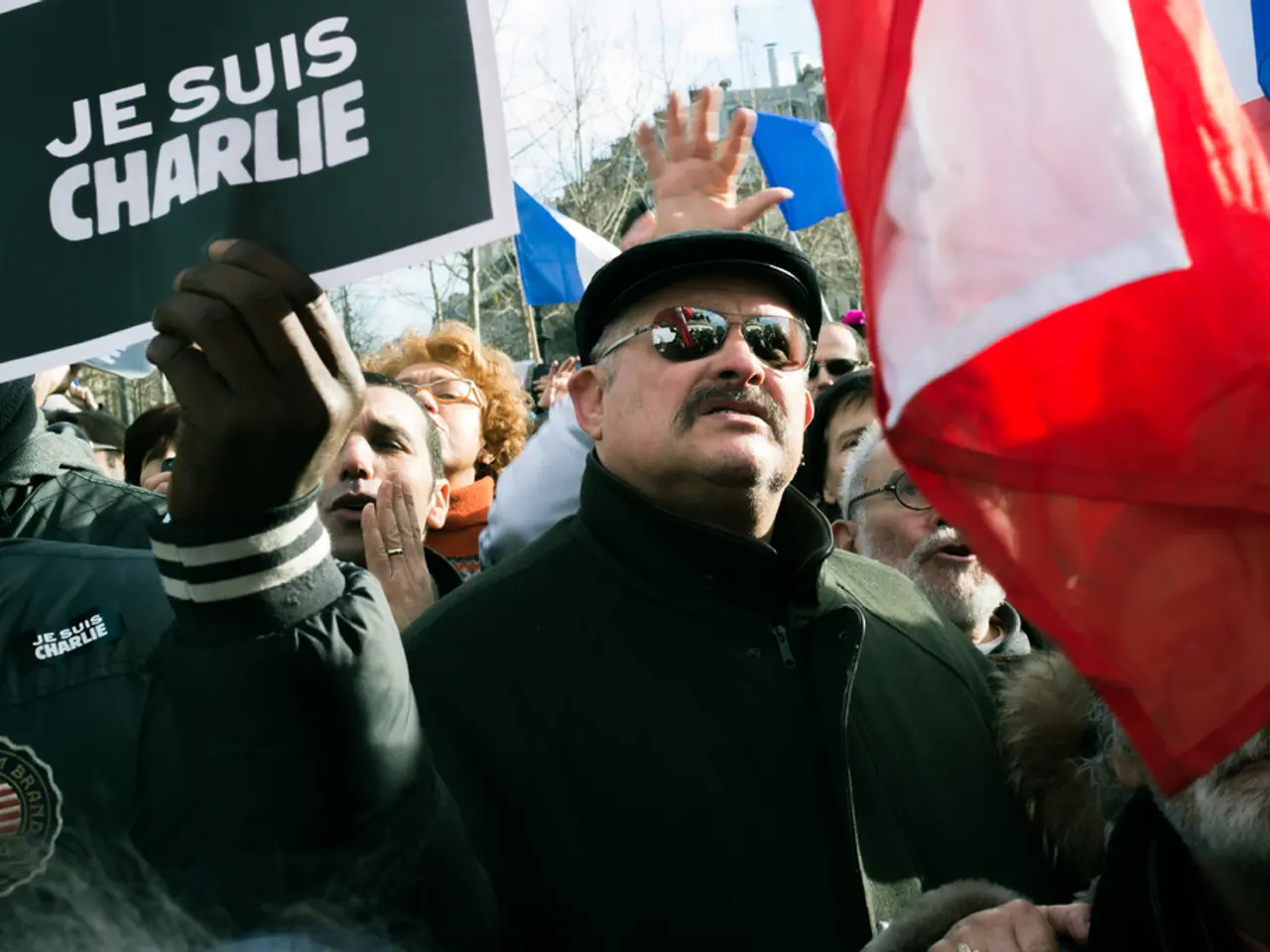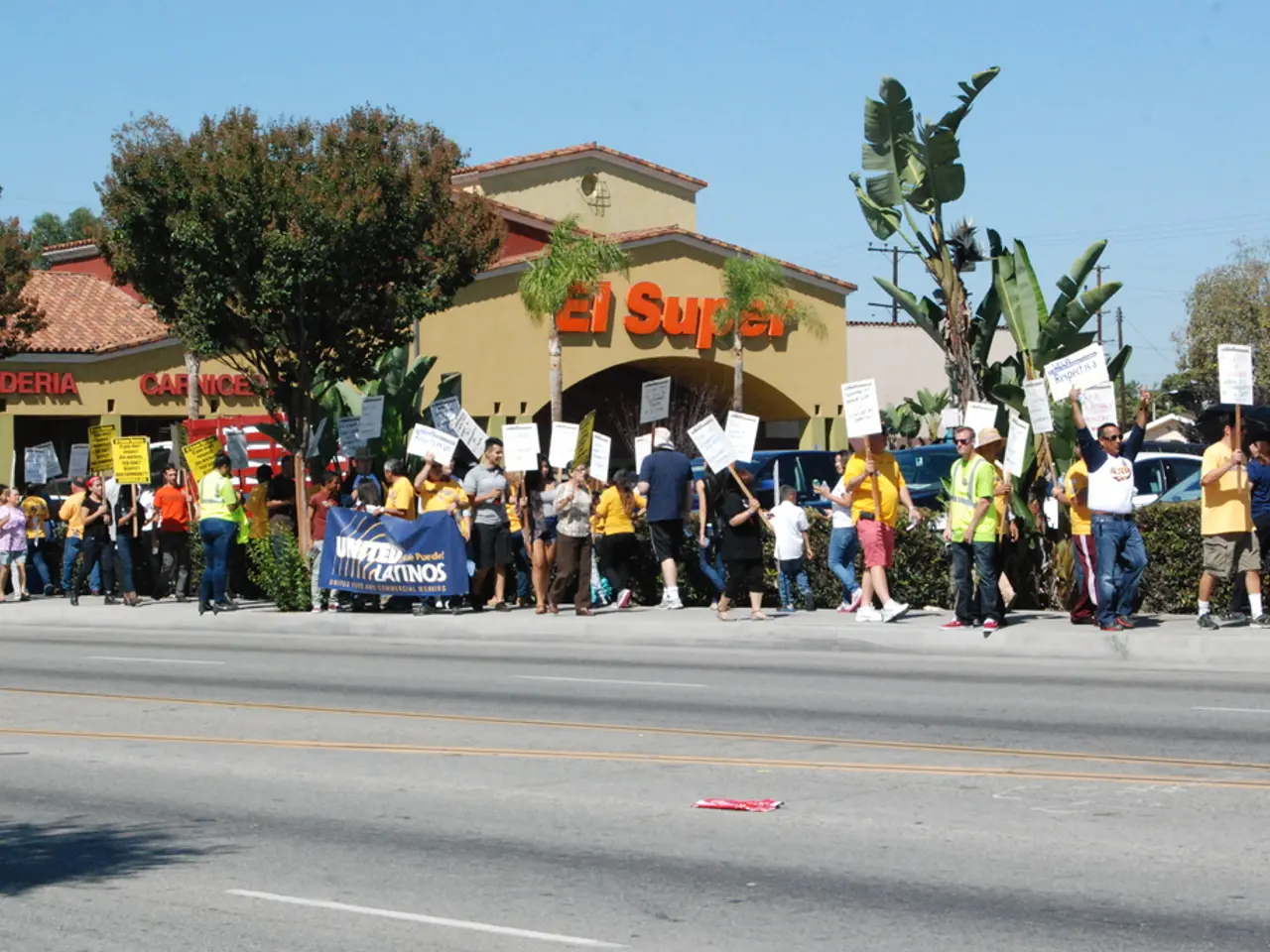A Temporary Halt: The Bundestag’s Move on Refugee Family Reunification
Parliament Suspends Refugee Family Reunification
In the heart of Europe, the Bundestag, Germany's federal parliament, has taken a bold step with far-reaching implications. After a high- octane debate, they've decided to temporarily pause family reunification for refugees with limited protection status, a decision primarily affecting people from Syria.
In support of this move, Interior Minister Dobrindt proclaims it a major triumph in their mission to control and balance immigration flows into Germany. "We're setting the migration policy agenda for this term," he says, "marrying compassion and order." And the vote? A resounding 444 in favor, with 135 parliamentarians standing against. The AfD, as expected, had announced their backing beforehand.
Beyond the numbers, though, what does this mean? Well, the suspension, as Dobrindt explains, would translate to a yearly reduction of 12,000 people coming to Germany, compared to the current guidelines. But it might not be as simple as that, as we'll soon see.
A quick glance at the past: Germany's beloved social systems, education system, and childcare system—all facing constant scrutiny—have drawn a line in the sand. "Immigration to Germany must also have its limits," Dobrindt asserts, "just like the systems we're committed to protecting."
Under earlier regulations, family reunification for those granted subsidiary protection status was capped at 1,000 members per month. Now, only in dire circumstances will spouses, minor children, and parents of unaccompanied minors be allowed to join.
AfD': Tiny steps for lots of ground
The AfD views the coalition's proposal as a modest but laudable move, therefore offering their support. Their parliamentary business manager, Bernd Baumann, credits Dobrindt for borrowing ideas from the AfD. However, this support leaves many in the opposition fuming, with interruptions and accusations flying back and forth.
The fallout's palpable, with the Left MP Luigi Pantisano facing a stern reprimand from Bundestag President Julia Klöckner for his allegation that Dobrindt had lied. The Left's refugee policy spokesperson, Clara Bunger, accuses the coalition of pursuing a "xenophobic deterrent policy."
Not everyone's on board, though. The Greens and Union parties have differing perspectives: The Greens worry about the emotional support refugees lose without family, while the Union stresses the need for limiting access to those who entered Germany illegally.
Over at the SPD, Integration Commissioner Natalie Pawlik advocates for ditching the negative immigration conversation, highlighting the opportunities it brings for German society. Yet, their spokesperson for domestic affairs, Sebastian Fiedler, acknowledges that this isn't a priority they'd have chosen for themselves.
Refugee advocacy groups like Pro Asyl raise concerns, as some refugees have been waiting years for their family members to join them. They're investigating legal options and might support affected individuals in challenging this move in court.
To recap, the Bundestag's move to halt family reunification for refugees with limited protection status is a controversial but purposeful decision, focusing on managing migration and alleviating pressure on Germany's social systems. But the repercussions for refugee integration and family life remain a topic of heated debate.
Sources: ntv.de, mdi/AFP/dpa
- Alexander Dobrindt
- Refugees
- Migration
- Pro Asyl
- Asylum policy
- German Bundestag
[1] https://www.elsevier.com/blogs/research-integrity/refugees-granted-subsidiary-protection-status-in-germany[2] https://www.bundesjustizamt-verwaltung.de/SharedDocs/Artikel/EN/Ueber-uns/Bundesamt-fuer-Justiz/Auswahlverfahren/Akte-angehoerige.html[3] https://www.bundesamt-gruendungsforderung.de/Ueber-uns/Verantwortlichkeiten/Zustandigkeit-wirtschaftsmigration-wirtschaft-usit-unternehmen-gruendung/Zustandigkeit-ausland/Subsidiary-Protection.html[4] https://www.dws.de/themen/subsidiarer-schutz/familienzu-berechtigung und Familienverbessarung[5] https://www.unesco.org/en/seekrefuge/content/whats-subsidiary-protection
- The debate surrounding the Bundestag's decision to temporarily halt family reunification for refugees with limited protection status has sparked discussions not only about migration policy and legislation (policy-and-legislation), but also politics, as the move is seen as a balancing act between compassion and control (politics).
- The temporarily paused family reunification policy could have far-reaching implications, not just for the number of people coming to Germany each year (general-news), but also for the emotional wellbeing of refugees, who may be separated from their families for extended periods (general-news).





